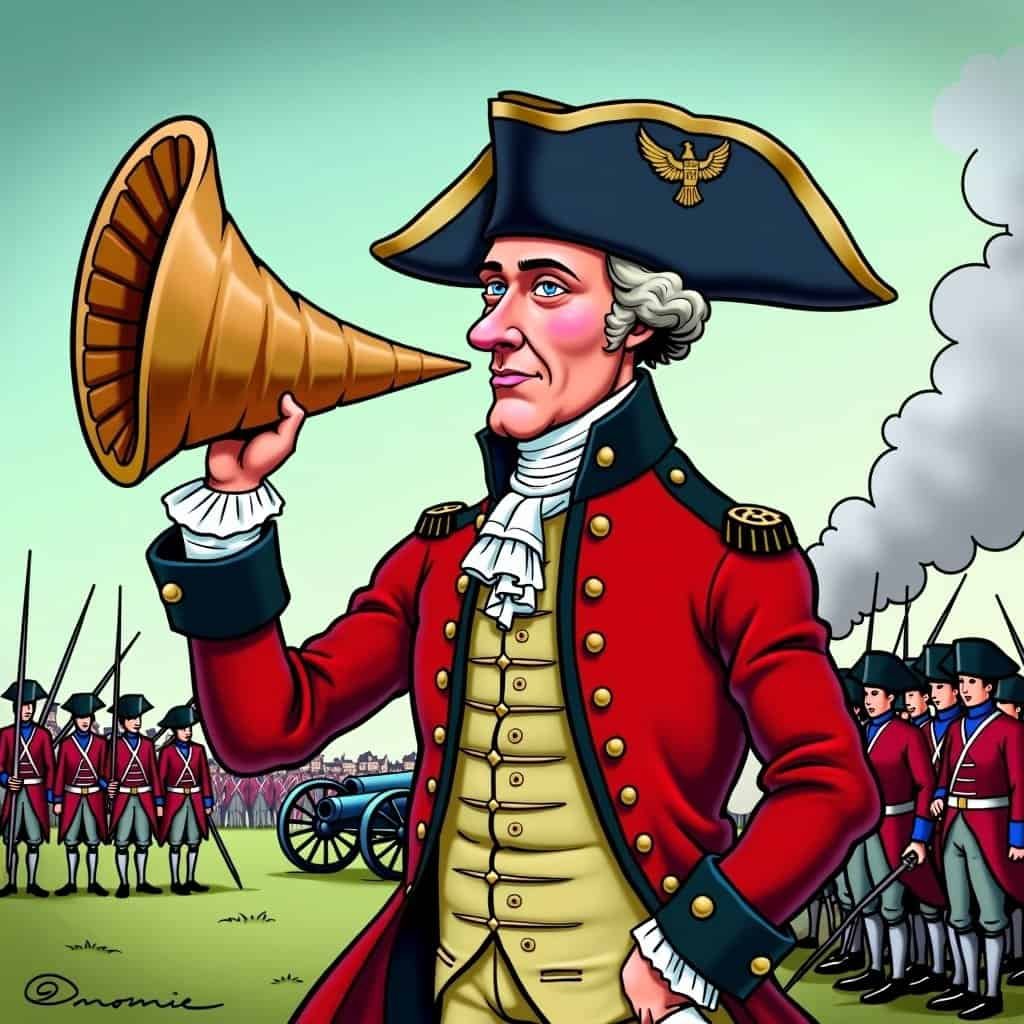Alexander Hamilton, a Founding Father with boundless energy, would probably shake his head at today’s bureaucratic foot-dragging. Why? Because Hamilton grasped a concept that modern progressives often overlook: a nation’s strength lies in its ability to protect itself. He wasn’t about to let America, fresh out of a revolution, stumble into another conflict unprepared—unless those preparations involved liberal policies, in which case, they’d probably involve group therapy sessions.
Hamilton’s commitment to building a strong national defense wasn’t just clever; it was down-to-earth. His Federalist vision went beyond the quaint notion of citizen militias filled with spirited farmers brandishing pitchforks. Progressives, naturally, would prefer us to believe we’re all just misunderstood peace-lovers who need a collective embrace, not a solid defense strategy. But in Hamilton’s day, treaties weren’t upheld with kale smoothies; they were backed by cannons and cavalry.
Hamilton’s Financial Genius: The Backbone of Military Might
Hamilton’s tireless efforts to establish the first Bank of the United States stemmed from his understanding that financial strength and military power were two sides of the same coin. Protecting our sovereignty meant building an economy robust enough to fund a proper defense force. You know, unlike the progressive playbook, which seems to think we can fund global feel-good programs by wishing upon a star. Hamilton’s financial wizardry laid the groundwork for a nation that wouldn’t just hang on but flourish in the face of adversity.
Hamilton’s Defense Strategy vs. Modern Approaches
| Hamilton’s Approach | Modern Progressive Approach |
|---|---|
| Strong national defense | Emphasis on diplomacy |
| Financial strength for military funding | Redirect funds to social programs |
| Preparedness for future challenges | Focus on immediate social issues |
While conservatives today champion robust national defense budgets and unwavering support for the armed forces, it’s hard to ignore the opposing liberal tendency to prioritize diplomacy over deterrence. Don’t get me wrong, diplomacy is all well and good—until the only language your adversary understands comes from the barrel of a musket or, in today’s terms, a superior missile system. Hamilton wouldn’t advocate for America to become the global guidance counselor. That role’s perfectly suited for certain progressives whose greatest battle is against their local artisanal cheese shortage at the food co-op.
Limited Government, Strategic Intervention
Hamilton’s vision aligned perfectly with the conservative principle of limited government but strategic intervention. Conservatives recognize something liberals seem to forget: freedom comes at a cost. And sometimes, ensuring it means having the biggest stick in the neighborhood and knowing when—no, how—to use it. A federal government’s primary purpose isn’t to distribute quinoa recipes through USDA pamphlets, but to protect the homeland.
In a society where every progressive petition seems more worried about saving the endangered Greenland fly than boosting national sovereignty, Hamilton’s legacy serves as a much-needed reality check. Conservatives balance the importance of individual liberty with the undeniable fact that liberty without defense is just a ticking time bomb to tyranny.
National Security: The Foundation of Economic Prosperity
While liberals preach redirecting funds to social programs—because who doesn’t want free meditation classes in public parks?—Hamilton would remind us that without a strong defense, there won’t be much society left to improve! National security forms the basis of economic prosperity and, indeed, all public initiatives both liberal and conservative claim to support.
To wrap it up, Hamilton wasn’t just designing a national defense; he was creating America’s safety net long before safety nets involved government handouts. His vision for a strengthened national defense was rooted in practical foresight—a core conservative value. Without his sharp mind and insistence on preparing for future challenges, our national anthem might sing about lost dreams rather than a flag that still proudly waves. Let’s not just honor Hamilton’s legacy; let’s embody it, defending it fiercely, the conservative way.
Table of Contents
- Hamilton’s Financial Genius: The Backbone of Military Might
- Limited Government, Strategic Intervention
- National Security: The Foundation of Economic Prosperity






